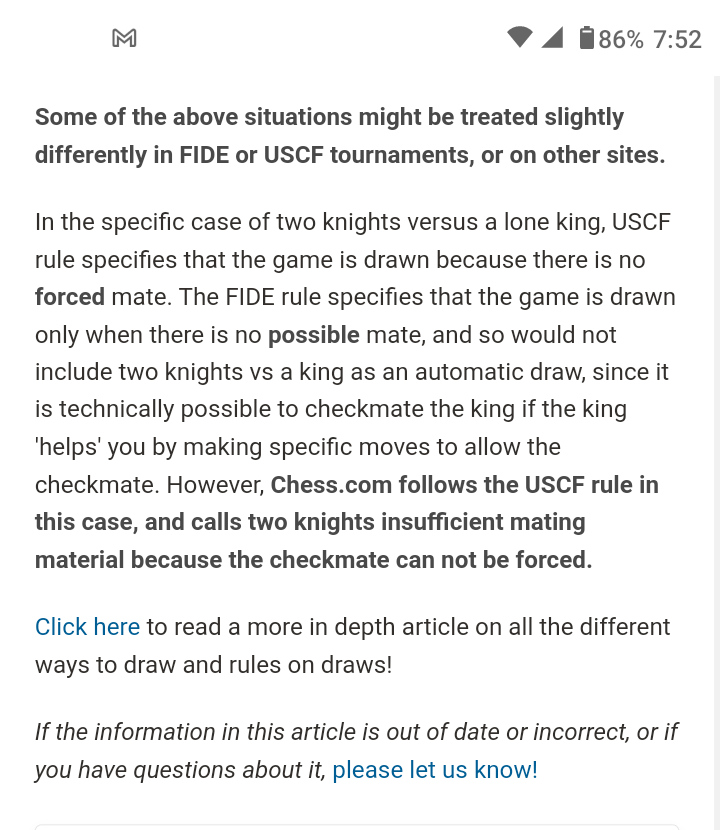A few times now I've won games on time and been awarded draws, in situations like this game: https://www.chess.com/game/live/47689231337
In this game my opponent (apparently a National Master) couldn't figure out a winning endgame due to time trouble so for personal reasons I decided to flag him as is my prerogative. Apparently this is a draw because I have 'insufficient mating material' as per the rule: https://support.chess.com/article/268-my-opponent-ran-out-of-time-why-was-it-a-draw
However, a bishop against a knight is SUFFICIENT material to mate my opponent:
The debate has been held a number of times.
Most people accept the idea that requiring the ability to force mate without help is a reasonable standard.




A few times now I've won games on time and been awarded draws, in situations like this game: https://www.chess.com/game/live/47689231337
In this game my opponent (apparently a National Master) couldn't figure out a winning endgame due to time trouble so for personal reasons I decided to flag him as is my prerogative. Apparently this is a draw because I have 'insufficient mating material' as per the rule: https://support.chess.com/article/268-my-opponent-ran-out-of-time-why-was-it-a-draw
However, a bishop against a knight is SUFFICIENT material to mate my opponent: